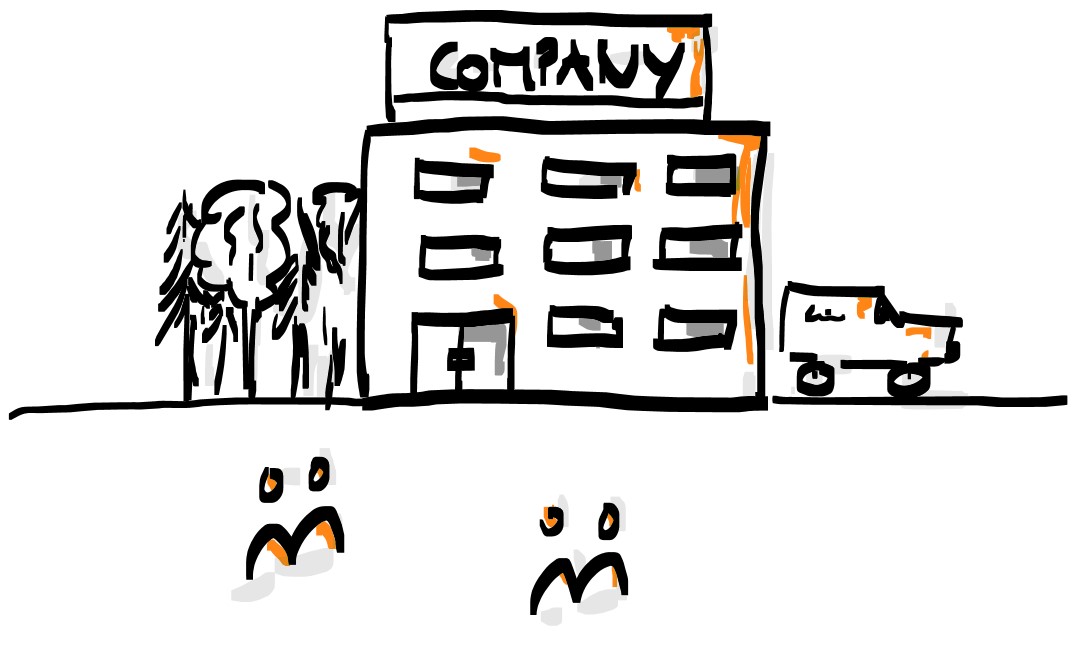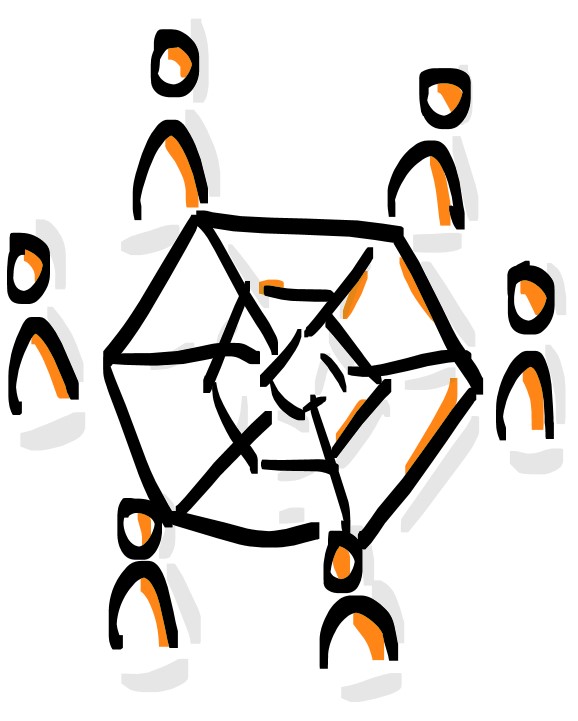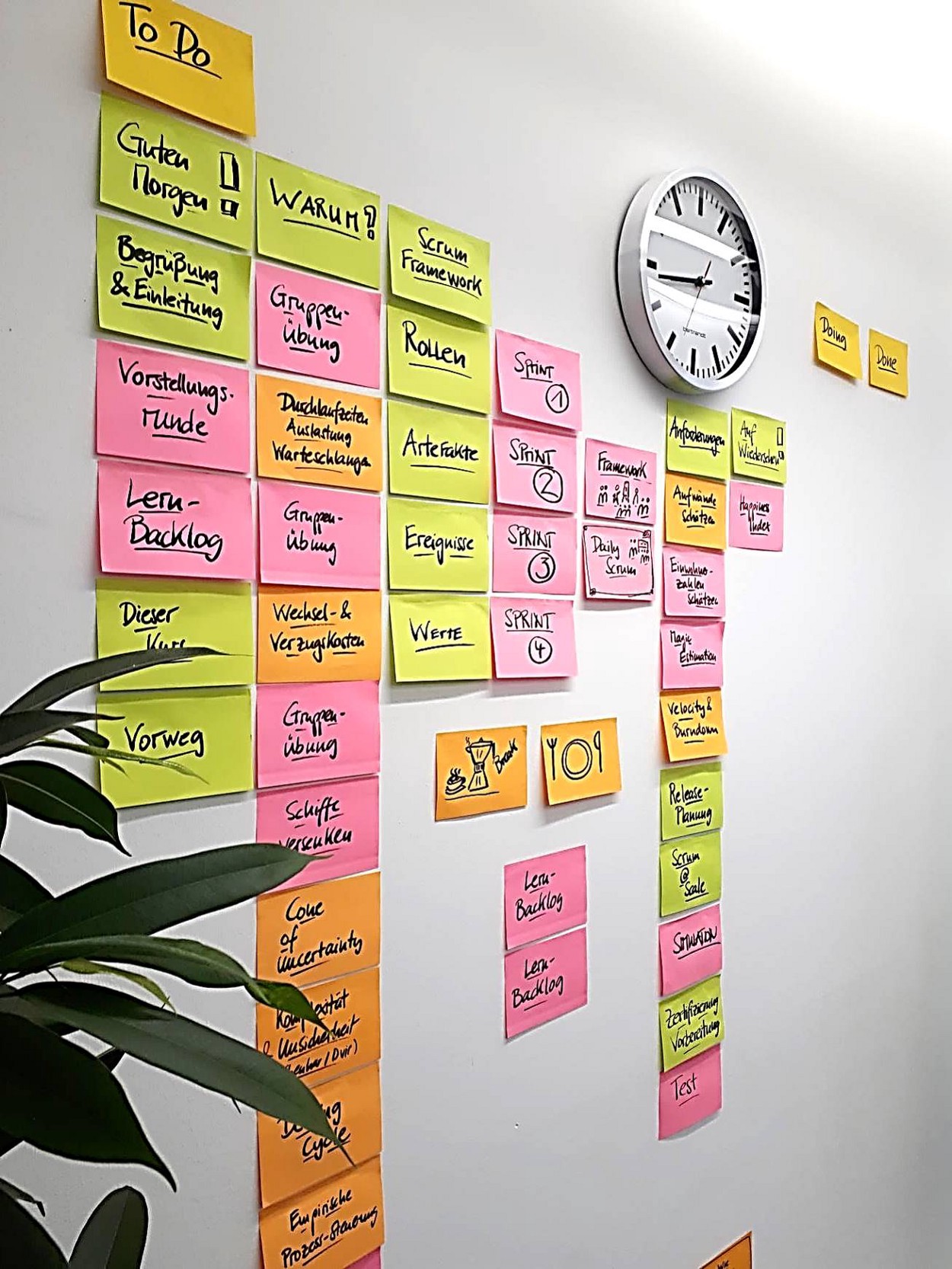Is It Possible to Consult in an Agile Way? Probably Not. So What to Do Instead?
All people
who are supposed to help teams to organize their cooperation in an agile way are confronted with the question every single day:
What to do? What can or must I contribute to help as an Agile specialist?
As Agile experts, we have the best knowledge (supposedly).
Nevertheless, we get into a surprisingly large number of situations in which we notice (mostly afterwards): What we do best in concrete terms is not so easy to answer. On the contrary: We simply do — whoops! — quite a lot of things wrong!
Especially in the current situation, when things are getting hot, when decisions are made quickly and the autopilot is activated. When people ask for our expert opinion (or at least we think they do). Then we give quick answers coming up with ready-made solutions.
Right or wrong — The Consultancy Trap
That’s no coincidence. It is learned behavior. Behavior, that we practice and internalize from childhood to professional life: “If you are asked, give the right answer as quickly as possible! Otherwise: Do what you are told!”
If we follow these instructions, we are rewarded with good grades, career and follow-up jobs: By giving correct, good answers quickly, by giving appropriate advice according to our mission.

However, in Agile, especially in the field of Agile change
we endanger the entire project with this consulting approach. This is why Agile turns away from this concept — out of conviction and as a matter of principle. People with an Agile mindset have made the experience that in an ever faster and more complex competitive world single opinions of single experts contain more risks than they contribute to a good solution.
In the experience of Agile professionals, finding solutions work much better when you involve the views and expertise of several people.
That’s why Agile no longer allows problems
to be handled only by single experts, e.g. managers or external consultants. In the first place, those directly or indirectly affected describe critical situations. Jointly in the group, as experts of their work, well-versed in the details. In the same way, the solutions are worked out.
Agile assumes that those who are affected can — and want! — to do so. And at least at the beginning without outside help.
After all, the two most important basic principles of Agile are “Self-Organization” and “Pull versus Push”.

Walk your talk
As Agile experts, we have an influential role model function, especially in the process of change. So we have to live by these two important principles. Because: If we don’t do it, why should the organization?
It is therefore particularly important that we remind ourselves again and again of our task: Helping people to help themselves.

The consultant role
is an obstacle in this. Because it involves telling people from an outside view what to do and what is right or wrong. But giving advice — including well-intentioned advice — is pretty much the opposite of self-organization. It is “Push” instead of “Pull”.
So consulting people is not very goal-oriented, at least if the goal is Agile cooperation. Instead, we better help the team to make unresolved, critical situations transparent or to identify states in need of improvement. (By asking, asking, asking. Not by showing, showing, showing).
Afterwards, the teams should have the space and the possibility to find good answers and solutions that are suitable for as many stakeholders as possible.
 Naturally, in this whole process, it is often necessary
Naturally, in this whole process, it is often necessary
to bring Agile or other specialized knowledge and practical advice into the group. Therefore, Agile coaches and consultants constantly switch between more consultative, coaching or other approaches.
So we constantly have to ask ourselves critically:
Are we advising in a consulting manner? In other words: Are we undermining the Agile project? Or are we really acting Agile: accompanying and trusting the team process?
Is that challenging?
Maybe. What is certain, though, is that our work will be judged by it.
What Else Comes To My Mind
- Adkins, Lyssa: Coaching Agile Teams. A Companion for ScrumMasters, Agile Coaches, and Project Managers in Transition.
- Appelo, Jurgen: How to Change the World.
- Pink, Daniel: Drive. The Surprising Truth About What Motivates Us.
- Sutherland, Jeff: Scrum. The Art of Doing Twice the Work in Half the Time

 Naturally, in this whole process, it is often necessary
Naturally, in this whole process, it is often necessary